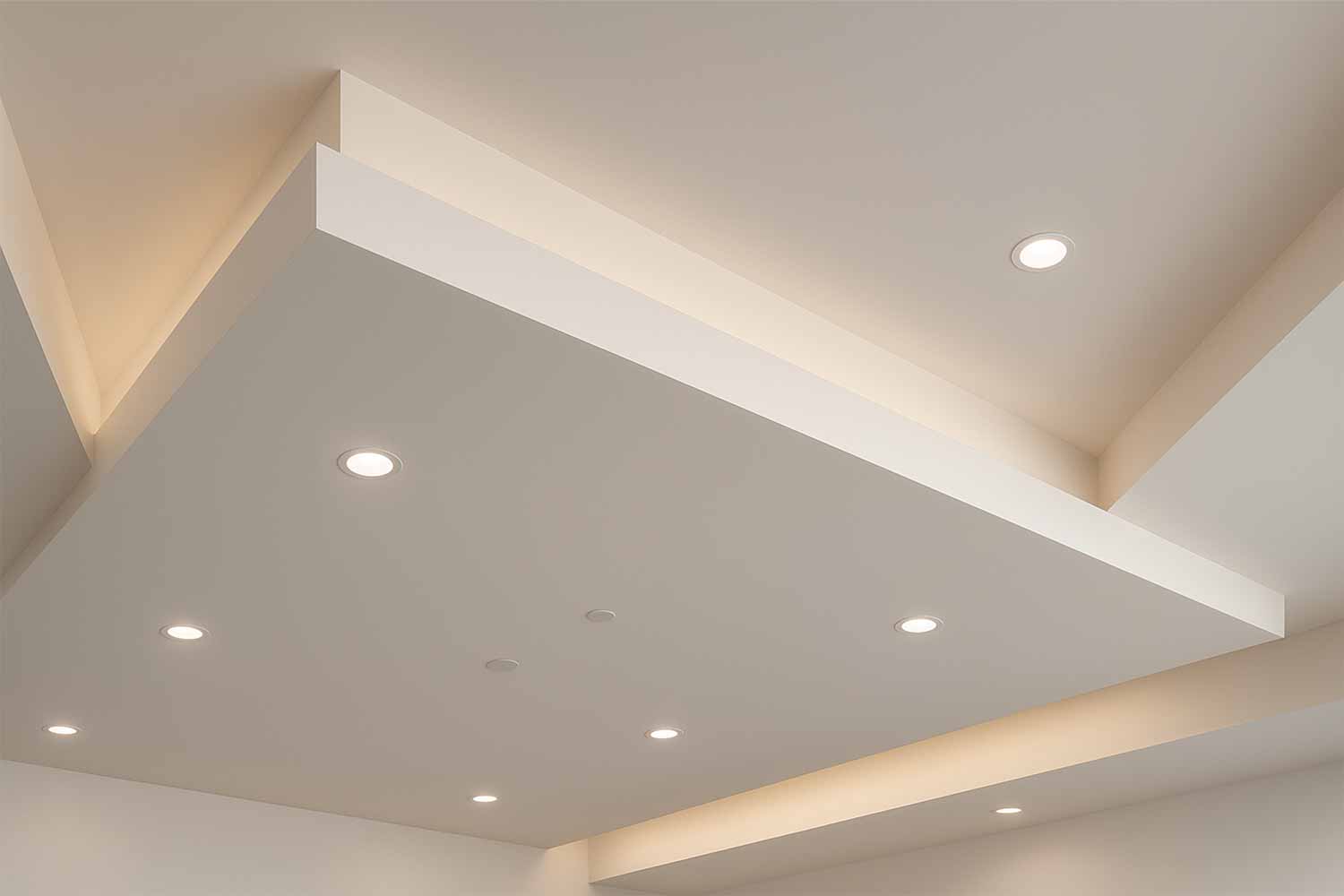Have you undertaken construction work on your property? Perhaps you’re planning renovations, knockdown rebuilding, or entirely building a new structure. If so, you might encounter the term “Certificate of Building Compliance” (CBC).
But what exactly is a CBC, and why is it important?
CBC is a formal certification from a registered building certifier that verifies that a building has met all required building codes and standards during construction. Without this certificate, a council will not accept an application for a building permit, emphasising its importance in the construction and real estate industry.
Get ready to explore the essentials of building compliance and understand why every construction needs this vital certification.
What is a Certificate of Building Compliance?
A certificate of building compliance (CBC) or BA18 is an official document issued by a local government or a registered building surveyor. It confirms that all the technical documents and drawings of a building or structure satisfy the applicable building standards, codes, and regulations. This certification ensures the safety, structural integrity, and usability of a building, providing peace of mind to developers, property owners, and potential buyers or tenants.
What is the Purpose of a Certificate of Building Compliance?
The primary purpose of a building compliance certificate is to ensure that buildings are safe, structurally sound, and habitable. Here are some key reasons why this document holds immense importance:
- Safety Assurance: A CBC guarantees that the building is safe for occupancy. It confirms that the construction meets structural, electrical, and fire safety standards.
- Legal Compliance: It ensures that the building adheres to local zoning laws and building codes, protecting the owner from potential legal issues.
- Marketability: For property transactions, a CBC can significantly enhance the marketability and value of a building.
- Financing and Insurance: Many lenders and insurers require a CBC before they will finance or underwrite a property, ensuring the investment is secure.
Our priority is your safety, and we’ll work diligently to ensure your project meets all building codes and regulations. Contact us today.
Don't Settle for Less—Build Excellence with Dhursan
When is a Certificate of Building Compliance Required?
A Certificate of Building Compliance is typically required in the following situations:
1. New Construction Projects
One of the most common instances when a CBC is required is upon the completion of new construction projects. Before a new building can be occupied, it must be certified as compliant with all relevant building codes and regulations.
2. Major Renovations or Alterations
Significant renovations or alterations to an existing building often require a CBC to verify that the modifications meet current standards. This is particularly important if the changes involve:
- Structural Modifications: Any alterations that affect the building’s structural elements, such as load-bearing walls or foundations.
- Systems Upgrades: Major updates to electrical, plumbing, or HVAC systems that must comply with modern safety codes.
3. Change of Building Use
When a building’s use or occupancy changes, a CBC and a residential occupancy permit may be necessary. For example, if a commercial building is converted into a residential space, it must comply with the appropriate regulations for residential occupancy to obtain the required approvals. The residential occupancy permit ensures that the building meets all the specific health, safety, and amenity standards required for residential use.
4. Building Additions
When adding new space to an existing building, such as an additional floor or an extension, a CBC is required to ensure that the entire building remains compliant. The addition must be:
- Consistent with the Existing Building: The new construction must integrate seamlessly with the existing building in terms of design and safety.
- Up to Code: The addition must meet all current building codes, which might be more stringent than those in place when the original building was built.
Failure to obtain a CBC for building additions can result in the new space being considered illegal and subject to removal or fines.
5. Lease Agreements
For properties being leased, particularly commercial spaces, a CBC may be required as part of the lease agreement to confirm that the building complies with security and operational standards. This is important for:
- Tenants: Ensuring the space they are leasing is safe, legally compliant, and suitable for their intended use.
- Landlords: Demonstrating that the property is maintained and operated according to local regulations.
Leasing a property without a CBC can lead to legal disputes, liability issues, and potential voiding of lease agreements.
6. Regular Compliance Audits
In some jurisdictions, regular compliance audits may be required to ensure ongoing adherence to building codes and safety standards. These are typically mandated for:
- High-Risk Buildings: Such as hospitals, schools, and high-rise residential or commercial buildings.
- Older Buildings: Properties that may require periodic re-certification to ensure they continue to meet modern security and operational standards.

Transform Your Vision into Reality with Dhursan Construction
What is included in a Building Compliance Certificate?
The specific contents of a Certificate of Building Compliance (CBC) can vary depending on your location and the nature of the building project. However, it will generally include the following key elements:
- Project Details: This section will identify the building, including its address, property description, and project type (new construction, renovation, etc.).
- Compliance Standards: The CBC will specify the building codes and regulations that the project adheres to. This might reference national or regional building standards and any local by-laws that were relevant to the construction.
- Inspection Reports: The certificate will likely reference any inspections conducted by the building surveyor throughout the construction process. This could involve inspections of structural elements, fire security features, plumbing and electrical systems, and accessibility features (if applicable).
- Issued By: The CBC will identify the registered building certifier who assessed the project and issued the certificate. It will typically include their contact information and professional stamp.
- Issuance Date: The date the CBC was officially issued will be documented.
Also Read: Different Types of Building Contracts and Agreements
Building standards and codes got you confused?
We will translate the regulations into clear and understandable terms, guiding you through every step of your home construction project, whether you’re starting from scratch or going for knockdown rebuild. Reach out to us today.
How to obtain a CBC Certificate?
The process of obtaining a building approval certificate typically involves several steps, but the specifics can vary depending on your location. Here’s a general guideline to give you an idea:
- Engage a Registered Building Surveyor: The first step is to find a qualified professional in your area. Look for an authorised construction surveyor with experience relevant to your project type. They can guide you through the entire CBC process and ensure your project adheres to regulations.
- Initial Consultation: Discuss your project details with the building certifier or the authority. They will assess your needs and determine the specific requirements for obtaining a CBC.
- Building Plans and Documentation: You’ll likely need to provide the building certifier with all relevant plans and documents for your project. This might include architectural drawings, engineering reports, and any existing permits you have obtained.
- Inspections: Throughout the construction process, the building surveyor will conduct inspections at key stages. These inspections ensure compliance with building codes for structural integrity, fire safety, accessibility (if relevant), and other crucial aspects.
- Addressing Issues: If the certifier identifies any issues during inspections, they’ll work with you and your contractor to address them before construction progresses.
- Final Inspection and Documentation Review: Once construction is complete, the building certifier will conduct a final inspection to verify that everything meets the regulations and review all project documentation.
- Issuing the CBC: Upon successful completion of all steps, the building surveyor will issue the official Certificate of Building Compliance. This document serves as formal verification that your building adheres to all relevant building codes and standards.
Conclusion
Understanding the significance of a Certificate of Building Compliance (CBC) is essential for anyone involved in construction projects. This certification not only ensures that a building meets rigorous safety and quality standards but also facilitates smooth legal and operational processes. Without it, a building cannot be legally occupied or utilised, which can lead to costly delays and complications.
In your journey to construct your dream home, Dhursan Construction is committed to guiding you through every phase of the process. We ensure that your new construction or knockdown rebuild project aligns with regulatory standards and successfully obtains the essential CBC. Contact us today for a free consultation!















